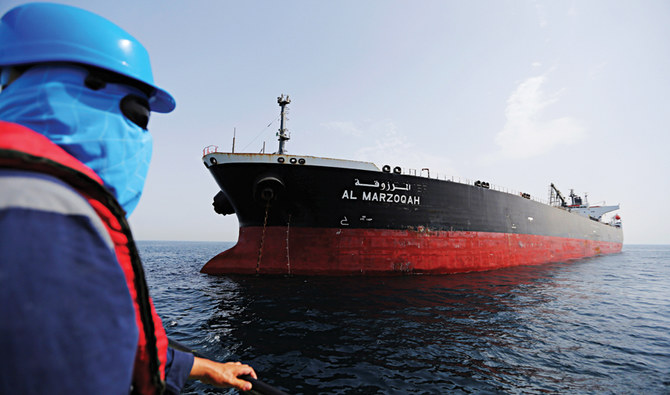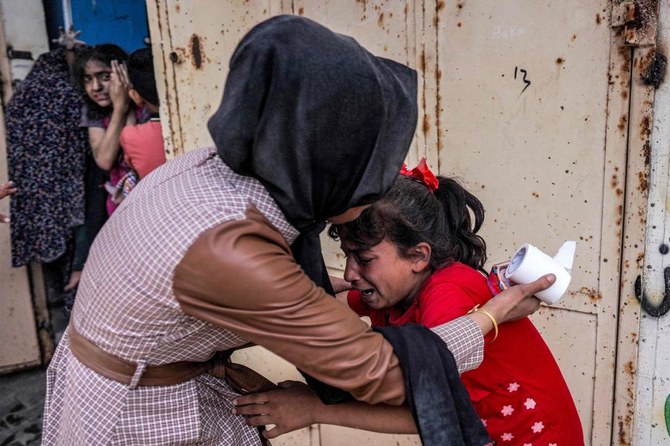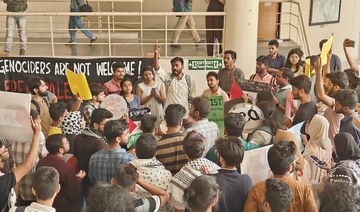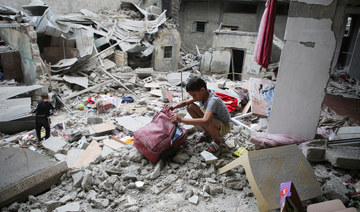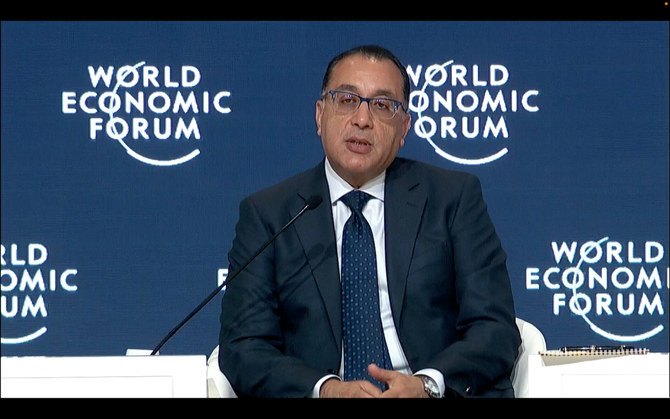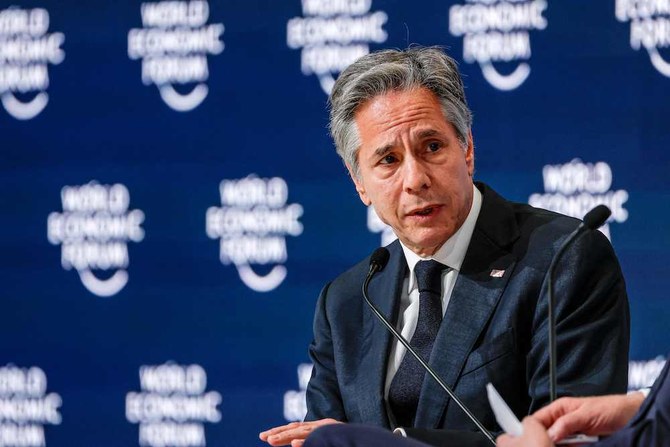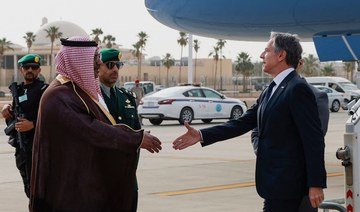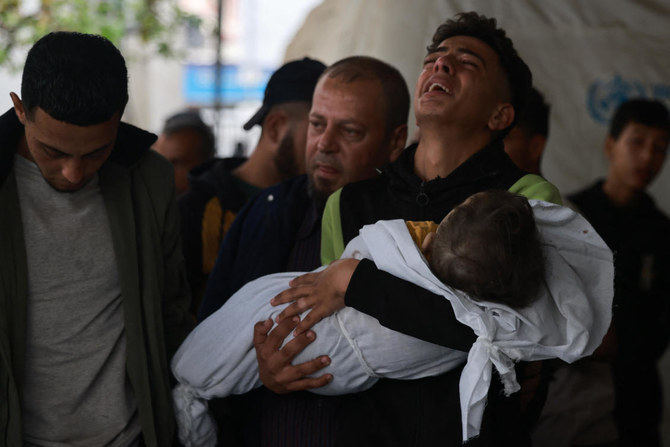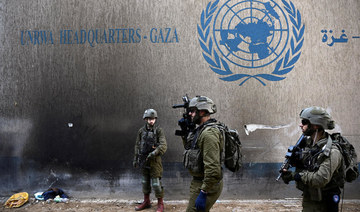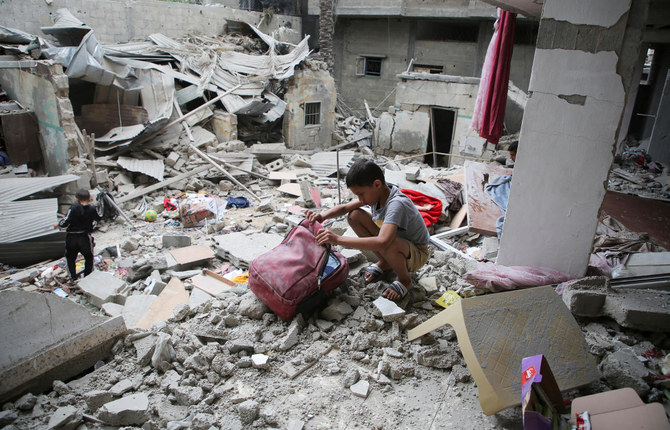DUBAI: Amid rising tensions between the US and Iran, sabotage attacks on four commercial vessels off the coast of the UAE’s Fujairah port have raised serious questions about maritime security in the Gulf.
The incidents, which included attacks on two Saudi oil tankers, were revealed by the UAE government on May 12, drawing strong condemnation from governments in the Middle East and around the world as well as the Arab League.
Now experts have warned that the sabotage attacks highlight a new threat to maritime traffic and global oil supplies.
A Saudi government source said: “This criminal act constitutes a serious threat to the security and safety of maritime navigation, and adversely affects regional and international peace and security.”
The Organization of Islamic Cooperation (OIC) said the incidents threatened the security and safety of international maritime traffic.
While crimes on the high seas, including piracy, have tapered off in recent years, the attacks on the ships, three of which are registered to Saudi Arabia and the UAE, have called into question common assumptions about the Gulf’s stability.
Theodore Karasik, a senior adviser at Gulf State Analytics in Washington D.C., said governments of the Gulf region are mandated to watch over oceans and waterways.
“On top of this requirement is the need for a new regime of maritime coordination to prevent attacks on shipping because of the repercussions for logistical chains, corporate strategies and insurance rates,” he told Arab News.
The sabotage attacks took place east of Fujairah port, outside the Strait of Hormuz, a narrow waterway through which most Gulf oil exports pass and which Iran has threatened to block in the event of a military confrontation with the US.
Opinion
This section contains relevant reference points, placed in (Opinion field)
The latest threat by Iran to block the strait — if it was prevented from using the strategically important choke point — was made last month after the Trump administration announced the end of US sanction waivers on Iranian oil imports.
Johan Obdola, president of the International Organization for Security and Intelligence, said the recent attacks underscore the need for closer intelligence-coordinated capabilities among the Gulf Cooperation Council (GCC) countries, including satellite communication and maritime or vessel security technology.
“The threats to oil tankers are not limited to the Gulf, but have a global dimension,” he said, adding that the Fujairah incidents show the need to strengthen “the monitoring of the Gulf through regular and alternative sources, including intelligence operations, shared intelligence capabilities, and military intelligence analysis.”
According to Obdola: “A coordinated joint task force integrating oil, intelligence security and military forces should be (established) in order to project and prepare (for potential future attacks). This is a time to be as united as ever.”
GCC countries have intensified security in international waters, according to the US Naval Forces Central Command (5th Fleet). Additionally, two US guided-missile destroyers entered the Gulf on May 16 in response to what the US called signs of possible Iranian aggression.
“The attack has brought (the region) a bit closer to a possible military confrontation amid the escalation in tensions between the US and Iran,” Abdulkhaleq Abdulla, a former chairman of the Arab Council for Social Sciences, told Arab News.
“It shows that there are some vulnerabilities in maritime safety and security that need to be addressed. So, overall, it’s not very good news for the region, for the oil market or for peace and stability.”
Iran has called for an investigation into the Fujairah incidents and hinted at “adventurism” by foreign actors to disrupt maritime security.
The acts of sabotage were followed by strikes by explosive-laden drones on Saudi oil installations, which led to a temporary closure of the East-West pipeline, which carries crude from the Kingdom’s main oilfields to the Red Sea port of Yanbu.
A television station run by Yemen’s Iran-backed Houthi group later said it had launched drone attacks on Saudi installations, but did not identify the targets or time of the attacks.
Abdulla said Iran is purposely dragging Saudi Arabia, the UAE and possibly other Gulf countries into its fight with the US.
“Iran thinks these are the sub-targets that it can get away with,” he said. “Incidents (of the kind) are not common in the Gulf, so it’s an indication we are in for more escalation. The threat is there — we heard it from (Iranian President Hassan) Rouhani himself, which makes it even more credible,” he said.
“The credibility of the US is at stake and Trump has said he will meet any aggression with unrelenting force. If Iran continues on this path, we might see some kind of a military showdown on a limited scale.”
Given the importance of the region’s oil supplies to the US, Abdullah said “it’s not just the responsibility of Arab Gulf states but an international responsibility” to keep the shipping lanes safe.
While heated rhetoric emanates from both Tehran and the White House, some believe the Trump administration is pursuing two incompatible goals — preventing Iran from exporting oil and keeping oil prices low.
Mark Katz, who teaches government and politics at George Mason University in the US state of Virginia, said: “Saudi Arabia has indicated its willingness to increase its own oil production in order to make sure that the withdrawal of Iranian oil from the market does not result in an oil price spike.
“However, the attack on the tankers ... calls into question whether oil prices can be kept low. If insurance rates on Gulf shipping rise because of the attacks, this will serve to increase prices to importers of Arab Gulf oil.”
Should Iran be found responsible for the damage to the tankers, Katz said, Tehran’s message might be that it will make it difficult, or at least expensive, for Saudi Arabia and the UAE to export oil if the US prevents Iran from doing the same thing.
“By not claiming responsibility for the attacks, whoever staged them hopes to avoid retaliation while also increasing uncertainty about the safety of buying Arab Gulf oil,” Katz told Arab News.
“The most appropriate response at this point would be for the US navy, in conjunction with its Western and Arab allies, to increase its patrolling of Gulf waters,” he said.




